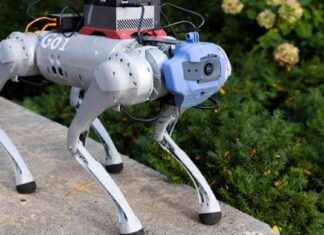Russia relies economically on China. The economist Oleg Vyugin considers this risky and warns that his country is threatened with subordination.
Russian economist Oleg Vyugin has a bleak prognosis for his country’s future. “Russia will become a satellite of the Chinese economy,” he said in an interview with the Business Gazetta newspaper. Vyugin teaches at the Moscow School of Economics HSE and was head of the Russian Financial Market Authority.
After the Russian invasion of Ukraine, the West imposed sanctions and largely shut down economic relations. The Kremlin and Russian companies are therefore orienting themselves in the direction of China.
“China will not save us,” Vyugin said. The People’s Republic is behaving differently than Europe. “Russia and Europe mutually benefited from economic relations. “We weren’t just Europe’s gas station,” said the economist. Thousands of companies were active in Russia and built numerous factories and adhered to Russian rules. The country benefited from technology transfer Western companies have created jobs for Russians and entrusted management to them, and the West has not tied cooperation to political conditions.
But the People’s Republic is acting differently, Vyugin warned. Because for them, Russia is primarily a supplier of raw materials – like Africa. “Chinese enclaves” would be set up there. “China is investing but shielding its technology very carefully. Chinese managers work in key positions while locals are just support staff.” Infrastructure or factories are being built by the Chinese, not by local people.
“The Russian market is not particularly interesting for China,” says Vyugin. The Chinese are concerned with using economic relations politically. The fact that Russia is subordinating itself to China is a long-term threat to Russian sovereignty.
The western sanctions would take effect, added the economist. They are not a one-off blow, but are “slowly suffocating the economy”. Most Russian companies are “in survival mode.” They would not invest in future development. Instead, they are trying to rebuild supply chains with new partners.
Therefore, the Russian economy will not really grow in the coming years, even if the gross domestic product (GDP) increases. “You can’t eat guns. But guns [production] is part of GDP,” Vyugin said. The development of the gross domestic product says nothing about the effects on everyday life. “A few people might be getting richer in Russia right now. But most people are getting poorer.”







